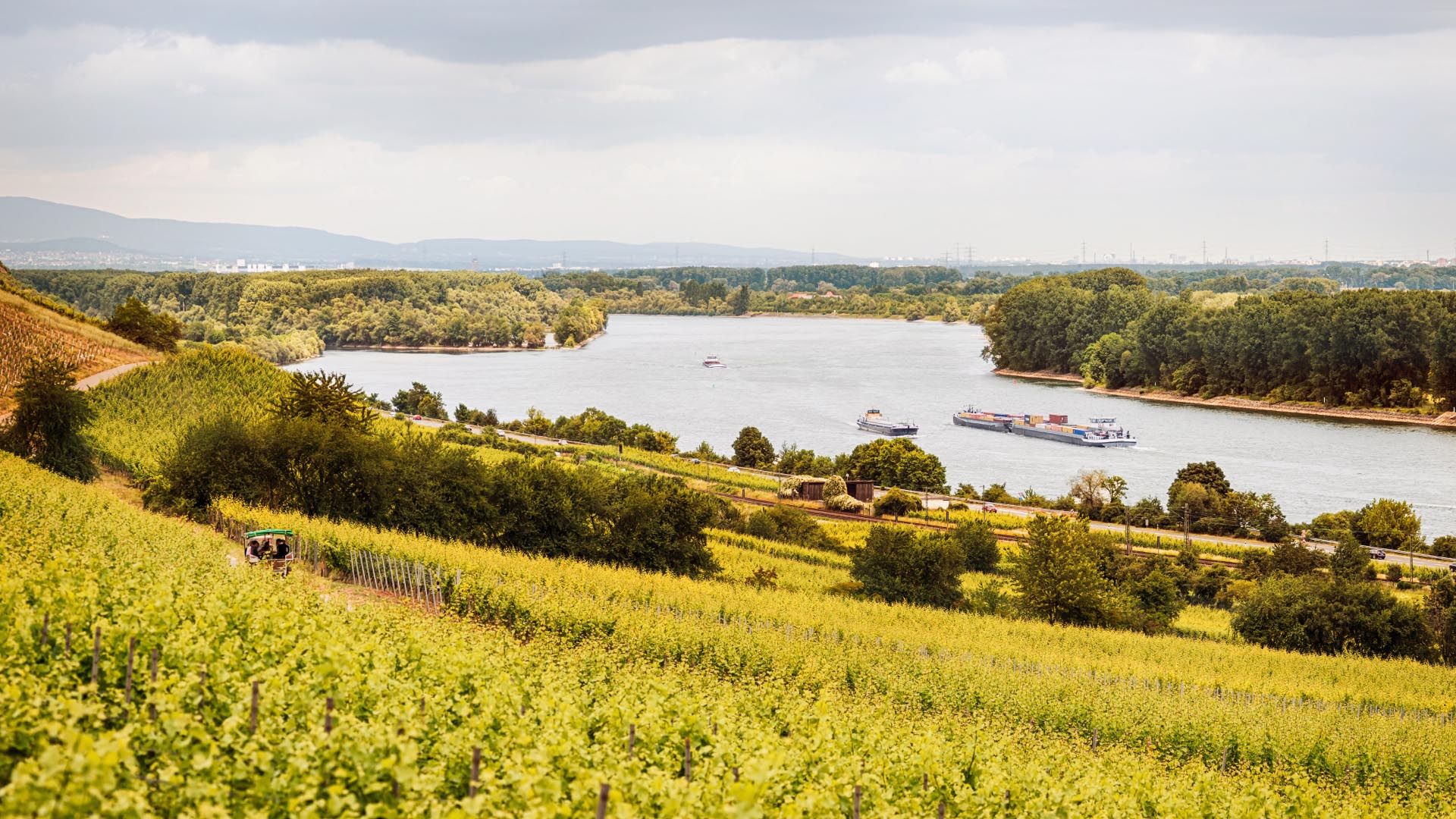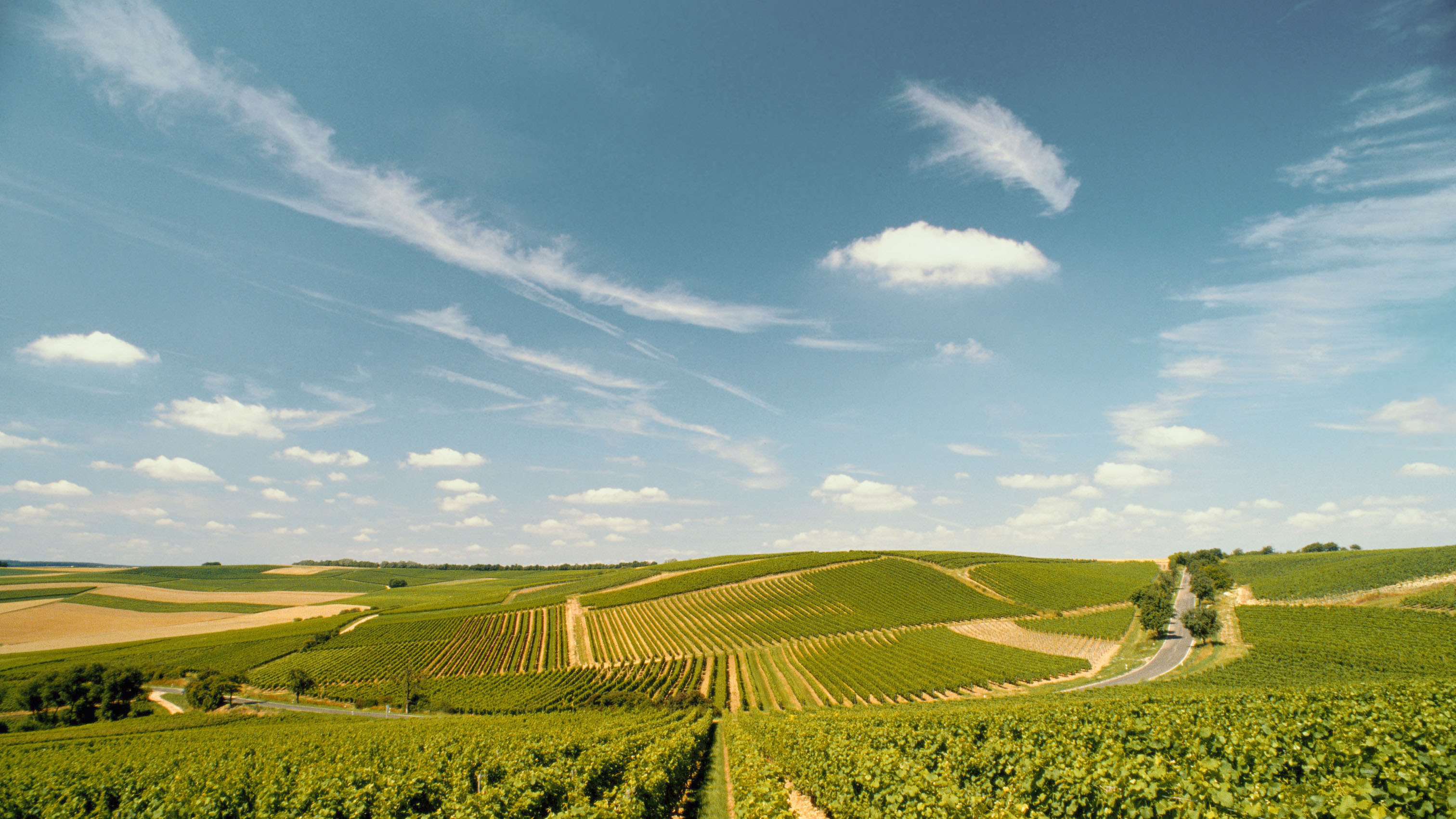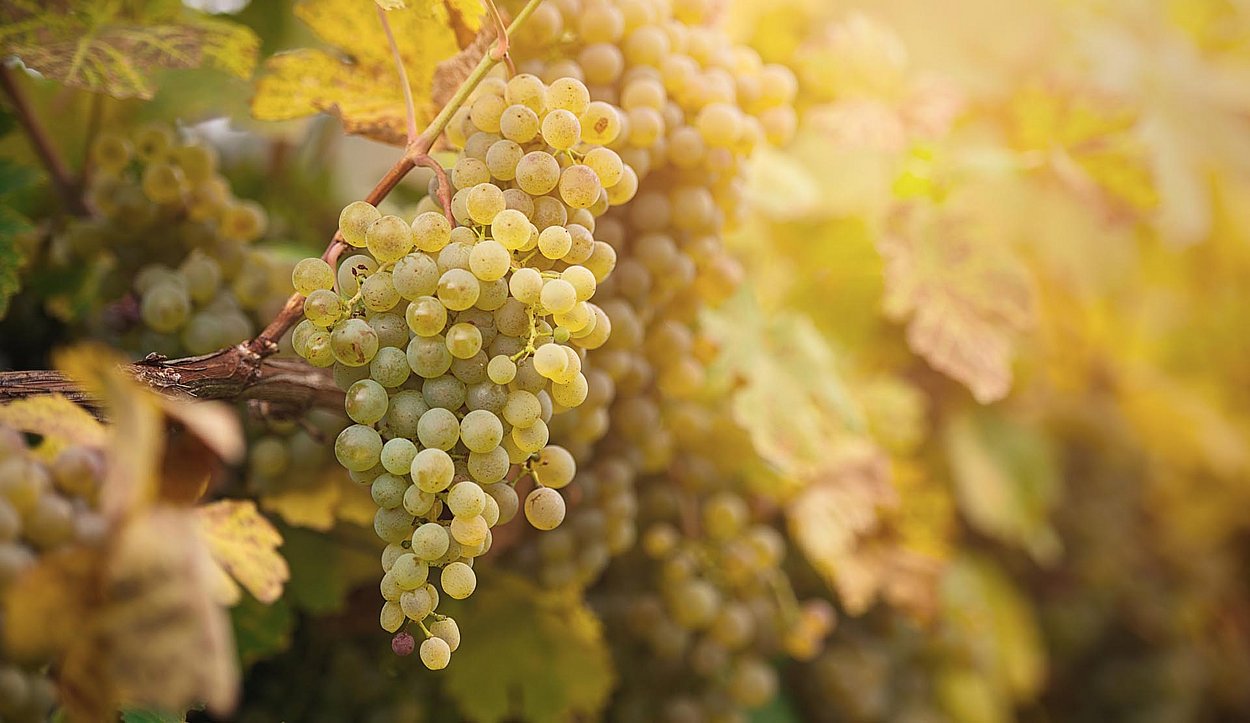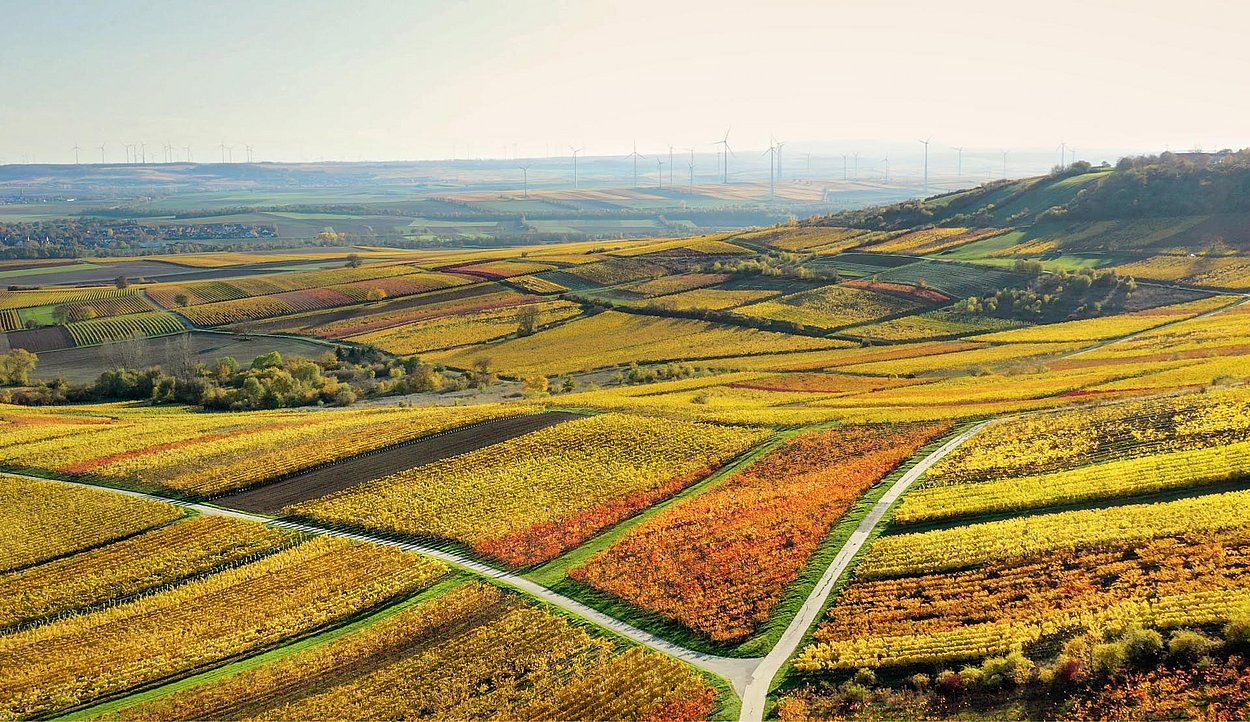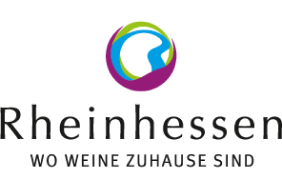“Guude” is what you’ll often hear in Rheinhessen when it comes time to savor the moment. In this grand wine-growing region on the Rhine, the many hiwwel (hills) are what lie behind our success. They provide the backdrop for Germany’s largest area of wine cultivation. Some of the most popular wineries in the country can be found here.
“Rheinhessen is Germany’s largest wine-growing region.”
However, it isn’t just the wine that invites you to relish the moment in Rheinhessen: towns steeped in history, including Mainz, Bingen, Alzey, and Worms, alternate with vibrant villages and scenic hiking trails known as the “Hiwweltouren.” Check out this land of a thousand hills and see for yourself how hiwwel-y it is here.
Grand history, glorious gusto, and GG-designated wines
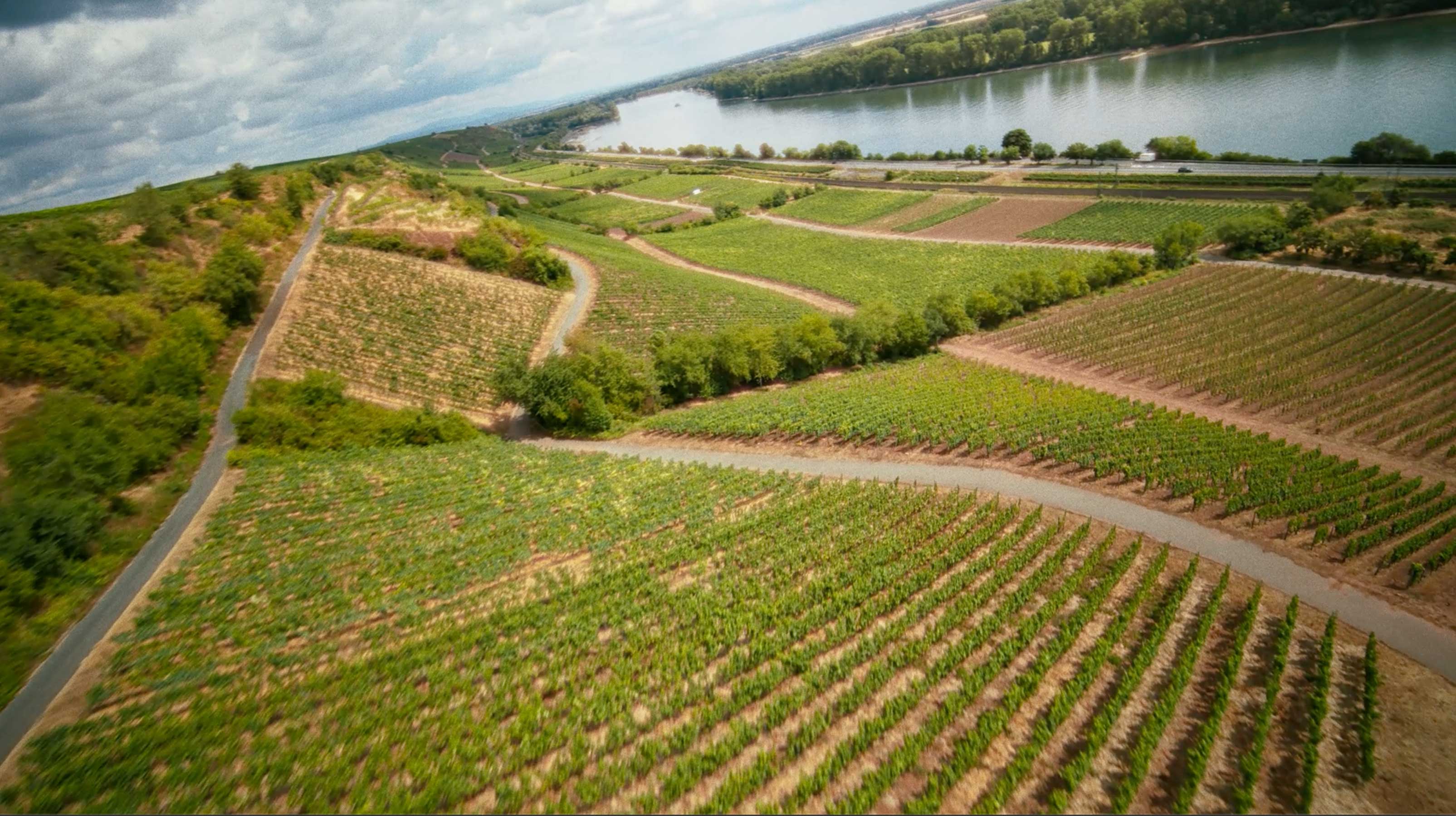
Cultivated area
Over more than 27,000 hectares of cultivated land, white wine varieties account for 75 percent and red wine varieties for about 25 percent of the yield.
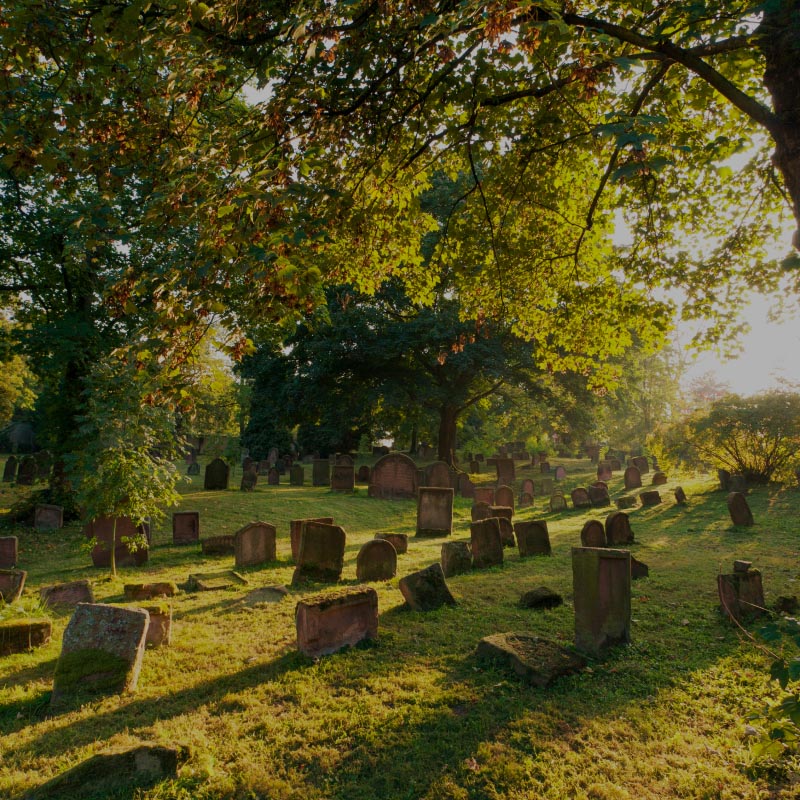
Jewish history
Celts? They were here before you. Romans? They were too. Nibelungen? Possibly. One thing is for certain: there’s much to discover here. Next to the Cathedral and the Nibelungen Festival, there is a thousand years of Jewish culture to explore such as the synagogue of Worms or the Rashi House.

Historic city center of Mainz
Johannes Gutenberg of Mainz revolutionized printing with the invention of movable metal type – reason enough to visit the Gutenberg-Museum. You also shouldn’t miss the impressive cathedral, the church of St. Stephen with its Chagall windows, the lively market, and the historic half-timbered houses.
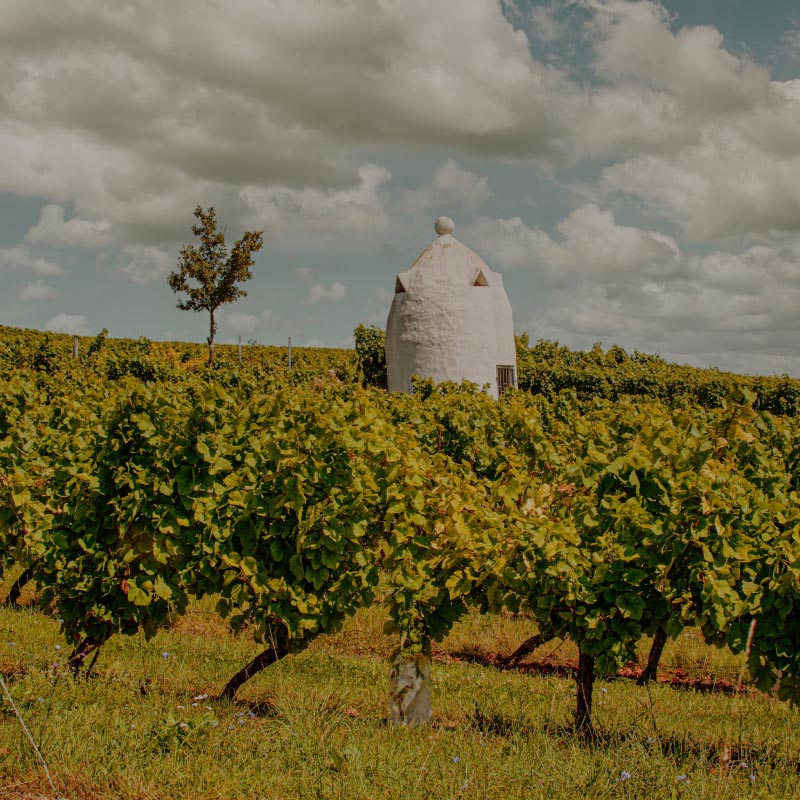
Hiking to the trullo
Trulli are not only found in Apulia - there is also a well-known example on the Adelberg in Flonheim. The round house is reminiscent of a sugar loaf and was originally built as a shelter for the workers in the vineyard. Now you too can seek shelter while hiking in the Rheinhessen trullo.
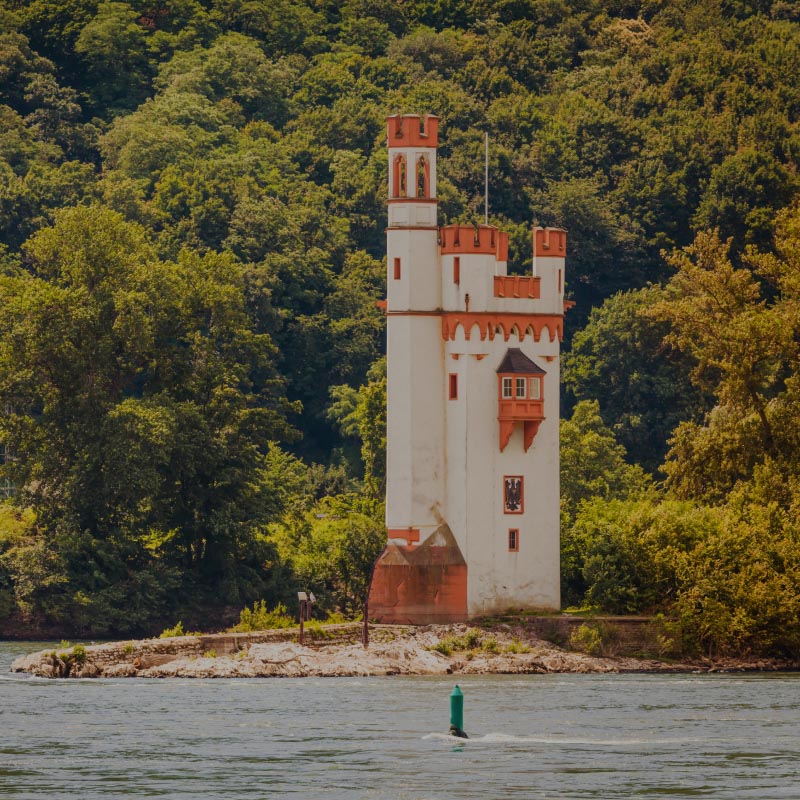
Bingen am Rhein
As the gateway to the Upper Middle Rhine Valley, the town where the medieval mystic Hildegard von Bingen once lived is a UNESCO World Heritage Site. The Rhine promenade invites visitors to take picturesque walks. The Bingen Wine Festival is the longest on the Rhine.
Further information can be found here:
Tourism and Experience
Investments
Make it in Rhineland-Palatinate
